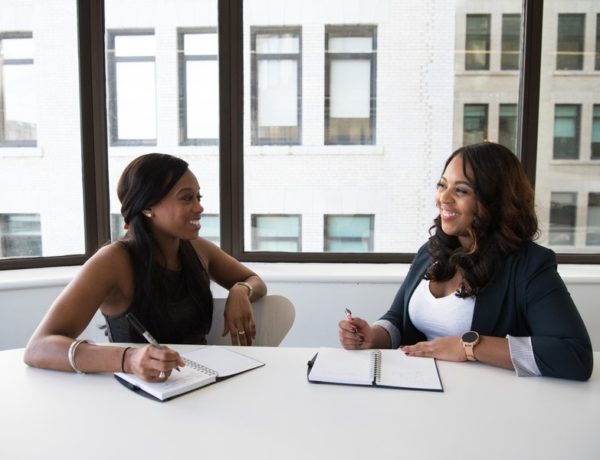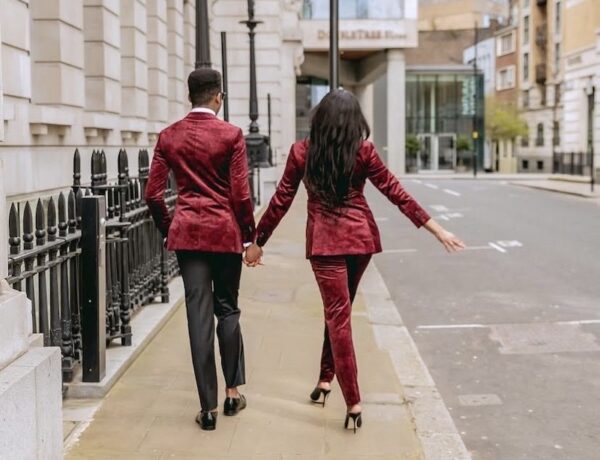“I am sorry, it wasn’t intentional”
Sounds familiar, right?
People have told you that and you probably said the same in a bid to apologise, but I can’t help wondering, how much of it is genuine?
Is “I am sorry” an apology or an excuse to you?
You know how most of us instinctively say “please excuse me” when addressing others, just because it’s how we’ve been conditioned to get the attention of someone who’s in our way. I feel that’s what “I am sorry” is to a lot of us.
We say it as a matter of conditioning, not a genuine apology that recognises the wrong done and seeks to make things right. When you say words like “I am sorry… but you caused it”, you turn something that should be sincere to a blame game. The purpose of the phrase “I am sorry” is now defeated as it becomes an excuse to justify your actions.
To avoid this, here are some ways to go about apologising the right way:
ACCEPTING YOU ARE WRONG
There’s nothing worse than someone who is clearly wrong gaslighting the offended party and making it seem like the offence is nothing.
You may think that doesn’t describe you, but if you do not readily admit your fault when apologising, you just might be gaslighting the other person.
So, when apologising, don’t belittle the other person’s feelings. Take responsibility for your part in making them feel the way they do and be remorseful about it.
Let the offended party know that you recognize how your action (or inaction, as the case may be) hurt them. When you do that, you make it easier for them to forgive you.

MAKING AMENDS
Making amends for your mistakes looks like this; you hurt someone, you apologise, you take action, and avoid repeating what you did that hurt the other person.
I understand that we are not perfect as humans, and we make mistakes, but it’s not okay to keep hurting someone.
There is no need saying sorry if you are going to do the exact same thing the next day. It shows you really don’t care about the other persons feelings. Your apology is not true until you have backed it up by putting effort into not repeating your action.
FORGIVENESS NEEDS TIME
I am sorry is not a ticket to automatic forgiveness. Forgiveness takes time, and if you are wrong, you owe it to the other person to be patient with them. Let them deal with their hurt until they are ready to heal from it.
Some people move on faster than others, but like I have said, “I am sorry” does not instantly erase whatever you have done.
You see the apology you are giving, it’s not about you; it’s about the person you are giving it to, so respect the other person’s feelings and their right to be angry, be patient and let them determine the terms for reconciliation.

APOLOGISE WITHOUT EXCUSES
I like this self-explanatory quote from Benjamin Franklin that goes, “Never ruin an apology with an excuse.”
While the “buts” and the “you could haves” might help you to “save face” as you give your apology, nobody will be fooled.
Don’t ruin your chance to save your relationship with excuses about how the person triggered the action you are apologising for.

Take ownership, make amends, and do better. I understand that we are all a work in progress but growth requires work.



14 Comments
Patrick
August 12, 2021 at 10:46 amInsightful post Etemi,
True, forgiveness takes time and some people heal faster than others.
Sometimes it takes a process.
An excuse will ALWAYS defeat the purpose of an apology.
Etemi Vincent-Okeke
August 12, 2021 at 12:03 pmYou are so right, no need for excuses, just apologise from a genuine place.
Mo'
August 12, 2021 at 6:03 pmHmmm… I feel like this issue of apology is not always straight forward, sometimes it is and sometimes, it is not. Sometimes you apologize because you value peace more than being right, not really because you believe you were wrong, in fact you may feel equally as offended as the other party, so if both remain on their stance that an apology without an acceptance of guilt is nothing or without a mention of how you were equally offended/triggered, then the relationship will be in jeopardy. I think there is a legitimate place for being sorry your part in the issue, but also needing the other person to own up to their part in the issue. How does one address that with only an apology and nothing more? How is the one apologizing but who is also offended expected to address the issue of what offended them, after they have apologized, if they are not allowed to say what triggered them? Is it ok for someone to keep triggering the other and turning around to expect an apology?
These are really just the issues that I keep thinking about when this subject of apology comes up.
Mo'
August 12, 2021 at 6:04 pmHmmm… I feel like this issue of apology is not always straight forward, sometimes it is and sometimes, it is not. Sometimes you apologize because you value peace more than being right, not really because you believe you were wrong, in fact you may feel equally as offended as the other party, so if both remain on their stance that an apology without an acceptance of guilt is nothing or without a mention of how you were equally offended/triggered, then the relationship will be in jeopardy. I think there is a legitimate place for being sorry your part in the issue, but also needing the other person to own up to their part in the issue. How does one address that with only an apology and nothing more? How is the one apologizing but who is also offended expected to address the issue of what offended them, after they have apologized, if they are not allowed to say what triggered them? Is it ok for someone to keep triggering the other and turning around to expect an apology?
These are really just the issues that I keep thinking about when this subject of apology comes up
Etemi Vincent-Okeke
August 18, 2021 at 11:08 amHmmn! I see where you are coming from, it can be as complicated as you described sometimes, but I think the general idea is; where you know you are totally at fault, do the needful by apologising from a genuine place and taking steps to avoid repeating that hurtful action.
Oseme
August 12, 2021 at 8:01 pmNice read, your write ups are easy to read and well articulated. Saying Sorry is a had one really, rightly so making amends and not doing it again should be the right thing to do but it does not always happen but it does really get to the point one has to be conscious of making amends
Etemi Vincent-Okeke
August 18, 2021 at 10:59 amI know right, but i wonder why we find it hard to say sorry. Yes we need to be more conscious of making amends. Thanks for your kind words.x
Nechia
August 12, 2021 at 10:04 pmI am a firm believer in saying sorry when you need to (and of course mean it) lol. sometimes people try to sweep issues under the carpet hoping and expecting you to forgive and move on. No- I think everyone should say ‘I’m sorry’ when necessary,regardless of your position or status.
Etemi Vincent-Okeke
August 18, 2021 at 10:57 amI totally agree with you on this.x
Bayo
August 18, 2021 at 11:43 amBrilliant post and insightful too. Further buttressing on accountability(taking responsibility) for actions or inactions that have caused some hurt to someone else. There should be a line drawn somewhere, some level of punishment/penalty or it would just be repeated behavior. Same cycle over and over again. And that breeds even more contempt.
Etemi Vincent-Okeke
August 18, 2021 at 11:51 amThank you Bayo, and thanks for your contribution.People need to know that some actions are unacceptable
Louanges
August 18, 2021 at 11:46 amSometimes we may not need an apology right away. We’re better off letting that person feel their shame before we give them any relief from their actions.
Etemi Vincent-Okeke
August 18, 2021 at 11:58 amI totally understand what you mean, plus sometimes you need a little more time to get over their hurtful action, so they must be patient. Sorry isn’t always enough.
VO
August 19, 2021 at 12:54 pmVery Insightful!!